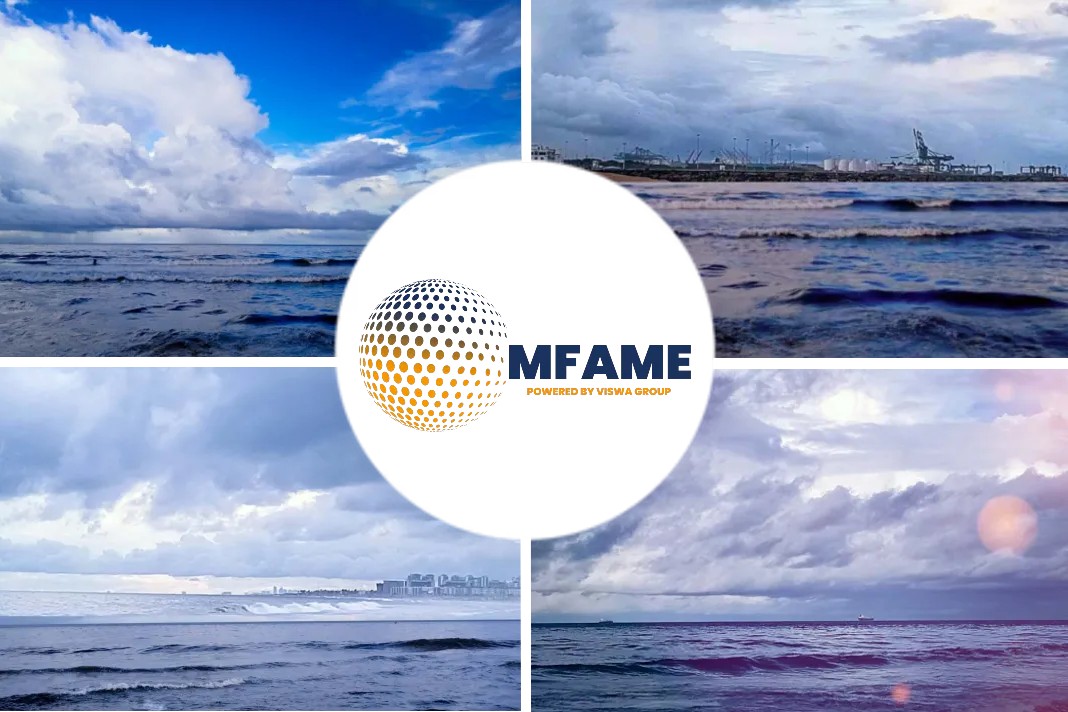
DNV has verified the safety of all aspects of Project Greensand’s CO2 storage in the North Sea, states a DNV news site.
Official safety approval from DNV
Project Greensand has received official safety approval from DNV. The project is the first in the world to demonstrate that CO2 can be transported across national borders and stored offshore to mitigate climate change.
On Wednesday, 8 March, HRH Crown Prince Frederik of Denmark officially opened the underground storage of CO2 in Denmark, following speeches by such figures as Lars Aagaard, Denmark’s Minister for Climate, Energy and Utilities, and Ursula von der Leyen, President of the European Commission. Later in the day, representatives from DNV, the independent energy expert and assurance provider, appeared onstage at the First Carbon Storage event in Esbjerg to present the Statement of Conformity to Project Greensand.
The presentation of this framed safety verification follows years of involvement by DNV of the entire value chain’s concept, design, components, underground sites and facilities. DNV has also analysed all safety aspects of Project Greensand’s pilot phase. The document is clear evidence that the safety of Project Greensand complies with the highest Danish and international standards.
“Our team of experts have worked closely with the Greensand consortium and followed the development of the project over the last few years,” reports Mick Cramer Jakobsen, Regional Head of Customer Relations for DNV and project director for the safety verification. “Our safety verification of Project Greensand’s entire pilot phase clearly shows that the project is fit for purpose, safe and compliant with all relevant Danish and international regulations and the highest standards. Naturally, it will be advantageous to have the safety verification already in place before the next phase of Project Greensand commences.”
The safety verification covers everything from the fabrication by the individual subcontractors to the actual offshore installation. It was received with pride by the partners behind Project Greensand.
“We are delighted that all safety aspects of Project Greensand have been approved by the best in the field,” says Mads Gade, Head of Country for INEOS Denmark. “We are convinced that safety will be a vital competitive parameter in the future CCS market. DNV’s thorough work and verification guarantee that our system can ensure that the stored CO2 remains underground, and that the safety of our employees remains paramount in the North Sea.”
With the safety of the pilot phase verified, Project Greensand is now able to continue working along the same lines to fulfil its ambition to store up to 1.5 million tonnes of CO2 per year in 2025/2026, and potentially up to 8 million tonnes of CO2 per year by 2030. Project Greensand complies with the Offshore Safety Directive, which sets the highest safety standards in connection with the storage of CO2 in the North Sea, just as it does with oil and gas activities.
Mads Gade explains: “Exceptionally strict requirements have been set for the safety procedures for operations in the North Sea – for instance, through the Offshore Safety Directive. The safety requirements for CO2 storage onshore are not quite so stringent, but despite the many safety procedures we see these strict requirements as a great asset. The Offshore Safety Directive and other complex laws and regulations mean that our work in the North Sea is protected by both belt and braces. Along with the safety verification from DNV, we have a solution that has already been tested and shown to be safe and effective, and we should continue this going forward when Denmark’s CCS market is to be scaled up further in the future.”
DNV’s work in connection with Project Greensand has involved extensive analyses of plans, the suitability of the underground sites, and the practicability of the storage and designs, along with DNV’s physical presence during a stress test of the individual sub-elements and approval of the connection and installation of offshore systems throughout the value chain and across national borders.
“We are very proud that our advanced technical expertise and understanding of the regulations can be used to promote initiatives like Project Greensand,” says Mick Cramer Jakobsen of DNV. “We want to contribute to the energy industry’s green transition with our expertise and guidance.”
Whether assessing a new ship design, qualifying technology for a floating wind farm, analyzing sensor data from a gas pipeline or certifying a food company’s supply chain, DNV enables its customers and their stakeholders to manage technological and regulatory complexity with confidence.
Driven by its purpose, to safeguard life, property, and the environment, DNV helps its customers seize opportunities and tackle the risks arising from global transformations. DNV is a trusted voice for many of the world’s most successful and forward-thinking companies.
In the energy industry
DNV provides assurance to the entire energy value chain through its advisory, monitoring, verification, and certification services. As the world’s leading resource of independent energy experts and technical advisors, the assurance provider helps industries and governments to navigate the many complex, interrelated transitions taking place globally and regionally, in the energy industry. DNV is committed to realizing the goals of the Paris Agreement, and supports customers to transition faster to a deeply decarbonized energy system.
About Project Greensand
The consortium behind Project Greensand consists of 23 Danish and international companies, universities and research institutions who are working to deliver a pronounced contribution to the green transition by storing CO2 below the seabed of the North Sea. At the First Carbon Storage event on 8 March 2023, Project Greensand was the first in the world to demonstrate that CO2 can be transported across national borders and stored offshore to mitigate climate change.
Did you subscribe to our newsletter?
It’s free! Click here to subscribe!
Source: DNV















